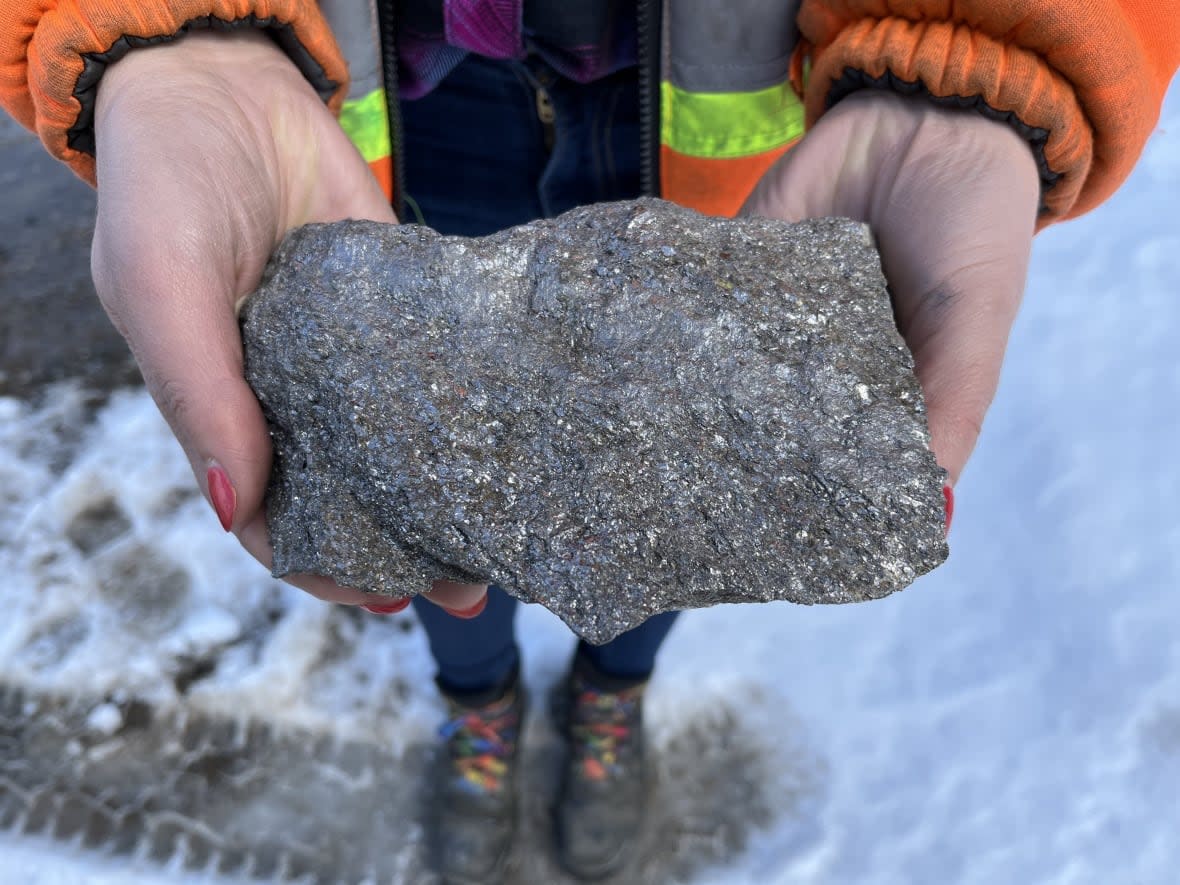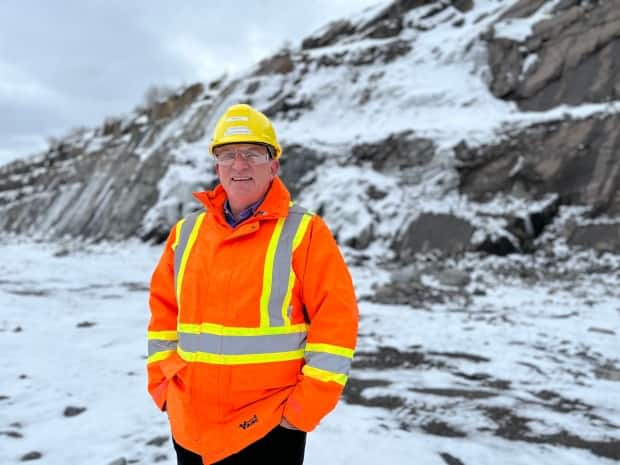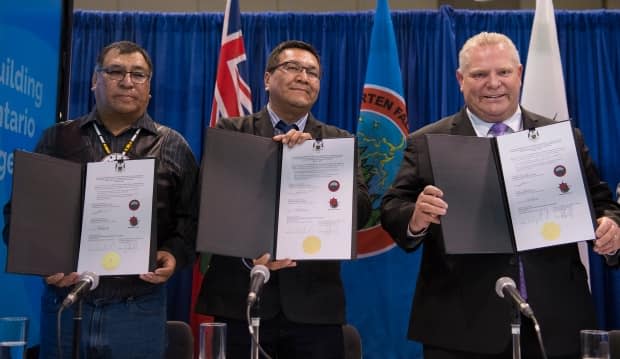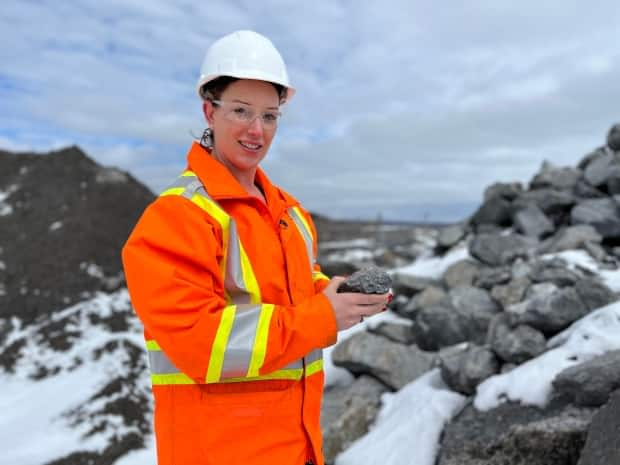Canada is sitting on a critical minerals mother lode. But is it ready for the new gold rush?

Drive two hours north of Ottawa, put on a hard hat and bright orange vest, descend into a pit — and you find yourself on the frontline in the fight to be part of the new, green economy.
A mining project might not be what comes to mind when you think of the transition to a lower emissions economy. But embedded in electric vehicles, solar panels and hydrogen fuel storage are metals and minerals that come from mines like the one in Lac-des-Îles, Que.
The graphite mine, owned by the company Northern Graphite, is just one of many projects aimed at extracting what are now officially dubbed "critical minerals" — substances of significant strategic and economic importance to the future of national economies.
Lac-des-Îles is the only significant graphite mining project in North America, accounting for Canada's contribution to an industry dominated by China.
Experts and industry proponents say Canada has the potential to be a major player in critical minerals — but it needs to change the scope and scale of investment and regulation in order to get there.
For Northern Graphite, in the short-term, that means money. Hugues Jacquemin, Northern Graphite's CEO, told CBC's The House during a tour of the Quebec facility that the company is trying to open a mine in Bissett Creek, Ont., to produce graphite that could go into EV batteries.
But they need to raise $150 million to kick-start production.

"No investor is willing to take 100 per cent of the risk. We need someone to step in alongside the investor and support part of the risk because today there is no demand for battery materials in Canada or in the U.S. at the moment," Jacquemin said.
"So we need something to help us jump-start the whole supply chain so that we can be there three or four years from now, when the market is buying materials."
The company says it expects to seek significant financial support from the federal government, but nothing has been confirmed so far.
For its part, the federal government says it's committed to helping build a critical minerals industry in Canada and recently released its official strategy to do so.
"We need to ensure that we have access to these critical minerals to be able to successfully go through the energy transition and fight climate change," Natural Resources Minister Jonathan Wilkinson said in an interview with The House.
Wilkinson told host Catherine Cullen that while the government is willing to work with companies, it can't be the only source of funding.
"The source of all capital doesn't come from the government. Government can actually do things to help kick-start those [projects]. But obviously companies need to be able to [raise] private capital," he said.
Wilkinson pointed to a number of measures the government has in place to help Canadian companies develop critical minerals projects, including the Canada Growth Fund, new tax credits for green investments and government funding for infrastructure to help facilitate projects.
Project timelines a concern
The Canadian government is far from the only one interested in critical minerals mining in this country. The U.S. Department of Defence has expressed interest in projects here — and a willingness to invest. Jacquemin said Northern Graphite plans to apply for American investment as well.
Critics — including Conservative Leader Pierre Poilievre — have said it simply takes too long to develop a mining project in Canada. Northern Graphite, for example, has owned Bissett Creek since 2012, and the mine is not yet operational.
Wilkinson said the average mining project typically takes around 12 to 15 years but "that's still too long." He said the government is aiming for something more like five or six years.
Ian London, executive director of the Canadian Critical Minerals and Materials Alliance, told Cullen that Canada has the "pieces of the puzzle" to unlock Canada's critical mineral potential, but more needs to be done.
"Prospective customers … want operating facilities, not aspirations," he said.
Environmental impact, Indigenous participation
Perhaps the most significant challenges to the mining industry come from concerns about environmental impacts and the role of Indigenous communities.
On the environmental front, advocacy groups like Environmental Defence worry that mining projects carry with them dangers of waste and environmental damage.
"We need to recognize that more mining likely needs to happen, but it needs to be governed responsibly, and we can't use the rush to extract more minerals for the transition to be an excuse for watering down environmental standards," said Nate Wallace, a program manager with the group.

Wallace noted that with some projects, there's a risk that the benefit of unlocking reduced emissions from innovations like electric vehicles would not be worth the cost of the project's greenhouse gas output. He cited the controversial Ring of Fire proposals in Ontario as one example.
"There's also significant environmental concerns about that project because it's covered by peatlands, and that's basically equivalent to Canada's Amazon rainforest, in terms of being a massive carbon sink," he said.
London said he agrees that a balance needs to be struck between environmental impacts and developing projects. He said that dialogue should continue on controversial projects, but Canada's focus should be more immediate.
"Our priority should be set on projects which are closer to — not shovel ready — but actually going into production," he said.
Wilkinson said the government is "very focused" on making sure the environmental cost of mining is minimized.
"There is no such thing as a mining project that has zero impact," he said. "But there certainly are projects that can be done in a way where the impacts are modest and that there is a plan for how you remediate in the aftermath of the mine."
The Ring of Fire proposals are also a key test of how governments and companies interact with Indigenous communities. The Neskantaga First Nation has said it was not meaningfully consulted on the proposals and has protested them.
WATCH | Neskantaga First Nation leaders voice opposition to mining development:
Mark Podlasly, an executive with the First Nations Major Projects Coalition, acknowledged that Indigenous people have been wronged in the past when it comes to development.
"Many First Nations are concerned that this new rush for critical minerals, towards the net zero transition, is going to be a repeat of what's happened in the past," he told Cullen.
"How it should work is Indigenous people have to be included in the environmental and economic decisions of the projects from the start."
Mining faces a reputational challenge
Kirsty Liddicoat, Northern Graphite's COO, said the mining industry also faces challenges when it comes to building up its own reputation and workforce. Along with domestic concerns, Canadian companies are frequently criticized for their actions overseas.
"I think mining as an industry is poorly understood and it doesn't necessarily have the best reputation. So that's leading us to a number of challenges with social acceptability and talent," she said.
"We need to be attracting the smartest people to the biggest problems that we have as a world, to help us make this shift."

London said the mining industry has taken steps to build in more corporate responsibility but there will always be a tradeoff in an extractive industry.
"A colleague of mine said when it comes to green technologies, amongst all that green, there's always going to be a little black," he said.
"It is an extractive industry, there will be some negative impact. But overall, it's tremendously positive."


